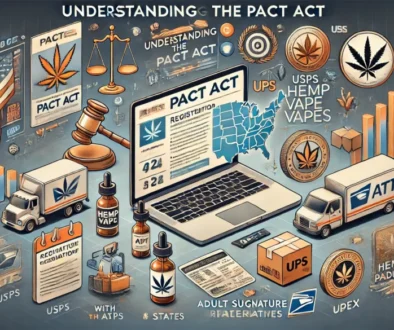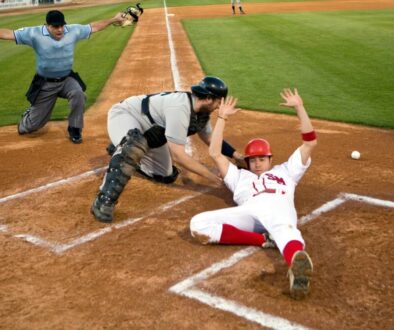What Is Music Licensing, And Why Is It Important For Sports And Entertainment Events?
Understanding Music Licensing
Music is an integral part of many sports and entertainment events. From walk-up songs at baseball games to halftime shows at football games, music helps create an exciting atmosphere that engages fans. However, using music at these events requires proper music licensing to avoid potential copyright issues. This article will provide an overview of music licensing and discuss why sports teams, venues, broadcasters, and other event organizers must obtain the appropriate licenses.
Holon Law Partners has 100+ years of combined experience guiding clients through complex cases and legal intricacies. Our empathetic, customized, and client-centered approach focuses on you and your unique business needs. To schedule a consultation, call our team at (866) 372-0726 or email us at info@holonlaw.com.

What is Music Licensing?
Music licensing refers to acquiring permission to use a recording or musical composition in a public performance, broadcast, advertisement, film, video game, or other audiovisual content. There are a variety of of music licenses, but some of the most important are the synchronization license and the public performance license.
Synchronization (or “synch) licenses allow the music to be incorporated into visual content like movies, TV shows, and commercials. Public performance licenses permit music use for streaming, radio play, live performances, background music in public venues, and on-hold music for call centers.
Other types of licenses include:
-
- Master Use License: For the use of recordings in broadcasts, live streams, podcasts, or other distribution
- Production Music Library: Gain easy access to thousands of songs, often pre-cleared for specific types of usage.
Without the appropriate licenses, the unauthorized use of music constitutes copyright infringement. Fortunately, the music licensing process allows event organizers, venues, and broadcasters to legally use music through royalty payments to rights holders like publishers and performing rights organizations (“PRO”). The four PRO’s in the United States are ASCAP, SESAC, BMI, and Global Music Rights (GMR).
Why Sports Teams Need Music Licenses
From introducing players when they walk on the field to keeping fans engaged between plays, sporting events incorporate a lot of music. That’s why sports teams need certain music licenses.
The venue typically holds public performance licenses for home games to play music legally. Teams should confirm what music rights are included in the venue’s license and if additional synchronization or master use licenses are required based on their music use. For example, commissions new theme songs or incorporates music in video content played on the jumbotron.
When teams play away games, it is less clear who holds responsibility for licensing. To avoid disputes, sports teams should obtain their music licenses to guarantee music rights no matter where they play.
Without proper licensing, sports teams risk claims of copyright infringement – even if music played during games sounds like background noise to fans. Music licensing for sports helps avoid unnecessary legal risks.
Why Entertainment Events Require Music Licenses: Music is essential to many entertainment events
From music festivals and award shows to New Year’s Eve celebrations and television competitions like American Idol playing copyrighted music at events and in settings that involve public or large gatherings of people usually requires one or more public performance licenses.
Examples of public performance licenses for entertainment events include:
ASCAP EXPO License: Covers over 11 million songs for conventions, expos, and showcase-style events
-
SESAC Public Performance License: Grants public performance rights for SESAC’s 400,000 song catalog
-
BMI Live Music License: Provides BMI repertoire access for music festivals, county fairs and auto racing events
Additionally, ASCAP, BMI, and SESAC all offer other kinds of public performance licenses for the use of songs in audiovisual content like television broadcasts or live streams.
Additional music licenses may be necessary depending on how the event uses music:
Reproduction / Mechanical License – For copying and distributing sheet music given to performers
-
On-Demand Streaming License – To incorporate music in internet/mobile streams
The rules around music licensing for one-off entertainment events like award shows or music competitions can be incredibly confusing. In these cases, it is wise for event organizers to employ an experienced music licensing attorney to ensure proper licenses are secured.
Without proper music licensing, entertainment events risk copyright disputes and infringement claims. Music licenses protect entertainment events and allow the legal incorporation of copyright-protected songs.
Music Licensing Challenges for Sports and Entertainment
As music licensing attorneys can attest, there are common challenges to securing licenses for sports and entertainment events. Delays in obtaining licenses can cause significant problems for time-sensitive productions.
Fragmented Music Rights: With song rights split between publishers, PROs, lyricists, artists, and other parties, securing all needed permissions poses an immense challenge. Who needs to grant license approval depends on factors like:
How old is the song?
-
Is it solely written by one songwriter or multiple writers?
-
Does the sound recording rights holder differ from the song owner?
-
Are the record labels and/or publishing companies involved?
-
Are there contracts that affect the administrative or approval rights of the co-writers?
Mixing licensing parties — especially for older catalog music — creates added complexity.
-
PRO Retroactive Fees: Events sometimes use music without realizing licenses are missing. PROs like ASCAP, BMI, and SESAC can then issue back fees despite a lack of intent to infringe. Retroactive license fees based on unauthorized past use can total $10,000+ in some cases.
-
Venue License Limitations: Relying solely on venue public performance licenses restricts how sports teams and event producers can utilize music. Custom music licenses are still required for many promotional usages.
Why Work With a Music Licensing Attorney?
To ease the challenges of securing licenses from myriad music rights holders, entertainment lawyers, and copyright attorneys experienced in music licensing provide valuable legal guidance.
They understand nuances across recording, publishing, public performance, and other music rights. Music licensing lawyers can pinpoint specific licenses required for an event and negotiate reasonable fees. Some attorneys partner with production music libraries for extra convenience to offer quick access to cleared songs.
Music licensing lawyers can also negotiate resolutions in cases of accidental copyright infringement or retroactive fee disputes. Their skill set in copyright and licensing regulations gives clients leverage.
Ultimately, music licensing attorneys help avoid unnecessary risks and ensure legal music use. They act as strategic partners to manage licensing details so clients can focus on event production and execution.
Handling licensing in-house is sometimes feasible for national sports leagues or franchises, large music festivals, and major broadcast networks. But for smaller regional events, local sports teams, and one-off entertainment productions, outsourcing this complex work to a music licensing lawyer simplifies the process considerably.
Frequently Asked Questions About Music Licensing for Events
Securing proper music licenses for sports, entertainment, and other public events can get complicated. To help clarify key questions around music licensing, here are common FAQs:
-
Do House Bands And DJs Play Cover Songs And Need Licenses?
Yes. While cover bands and DJs performing copyrighted music may seem incidental to an event, they still require appropriate PRO licenses for public performances. ASCAP, BMI, and SESAC all offer license options to cover bands and entertainment at bars, restaurants, and other venues.
-
Can We Secure One License To Cover All The Songs We Want To Use?
Yes and no. Public performance licenses are typically offered by each PRO as “blanket” licenses in which one license covers your access to the entire catalog represented by that PRO. However, each PRO represents a different body of work, so licenses are needed from multiple PROs to cover the widest range of available songs. For other kinds of licenses outside the public performance setting, you must license songs individually based on factors like copyright ownership and intended usage such as broadcast, online stream, or incorporate a visual work (such as a music video or a commercial). Music licensing professionals assist with managing licenses for your event’s entire soundtrack.
-
What Happens If We Accidentally Use A Song Without Proper Licensing At Our Event?
You could face cease and desist letters, lawsuits, and infringement claims – even if unauthorized music use only lasted a few seconds! These outcomes become likelier the more high-profile an event gets. Fix mistakes by immediately licensing the music and speaking with a lawyer.
-
If Our Venue Has A Public Performance License, Do We Need To Get Additional Music Licenses?
It depends. Review what usage rights are included in your venue’s license agreement. Complementary sync, mechanical, or master use licenses may be required for custom music integrations like video highlight reels or internet broadcasts. When unsure, consult music licensing lawyers.
-
Can We Use Popular Songs In Social Media Videos Promoting Our Event?
Only by securing synchronization licenses. While platforms like TikTok or Instagram provide overall licenses, they don’t cover individual music copyrights. The safest approach is working with a music lawyer to license songs you wish to include in social promos properly.
Key Takeaways: Must-Know Music Licensing Tips
If any ambiguity remains around music licensing for sports and entertainment events, keep these core tips in mind:
-
Leaving music licensing to venues has risks: Make sure necessary performance and synchronization licenses for your event are covered.
-
One license doesn’t fit all: Determine all applicable licenses based on how you utilize music—public performance, mechanical, synchronization, master use, etc.
-
Rights ownership varies: Licensing needs fluctuate based on factors like release date and contributing songwriters.
-
PRO fees add up quickly: Get retroactive licenses immediately upon discovering past unlicensed music use to avoid costly fees.
-
Home games ≠ Away games: Don’t assume music licenses extend to all venues. Cover all hosting sites to enable uninterrupted music use.
-
Check social media video rules: Using popular songs in online promos requires synch licenses, regardless of platform guidelines.
-
Experience simplifies licensing: Music licensing attorneys have the skill set to streamline license procurement tailored to your event needs.
Though the nuances around music copyright and licensing seem infinite, understanding a few core best practices will help sports and entertainment events remain compliant. Consult qualified music lawyers for personalized guidance securing the ideal licenses to play music at your next big production legally.
Choosing a Music Licensing Attorney
Music is a central component of sports and entertainment events, allowing organizers to create an immersive atmosphere that excites audiences. However, legally playing copyrighted music requires navigating complex music licensing rules. Securing appropriate licenses ensures compliance and protects against claims of copyright infringement.
Holon Law Partners has 100+ years of experience combined guiding clients through complex cases and legal intricacies. Our approach is empathetic, customized, and client-centered with a focus on you and your unique business needs. To schedule a consultation with us, call our team at (866) 372-0726 or email us at: info@holonlaw.com.



